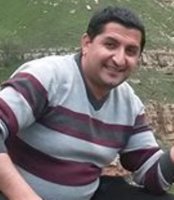UNICEF formed 40 Child Development Centers (CDC) in 11 districts of Azerbaijan in 1996, within the framework of "Early Childhood Care and Development" program in cooperation with State Refugee Committee, the Ministry of Education (MoE) and International Food Program. The aim of the Program was to provide all-round care and development to IDP children suffered from War and who live in a bad condition in Azerbaijan.
In May of 2002, UNICEF announced tender to gauge the project's impact and evaluate the project in order to identify achievements and failures of the project & provide suggestions on its future development. "Umid" HSSC was the winner of this tender and evaluated the project during September-November.
Observations
The evaluation team visited communities where CDCs were located, and each team member witnessed the interest and attitude of Education Department and Methodists in CDCs' work, the relations between community members and CDC, relations between careproviders and parents, and treatment of careproviders with the children.
Surveys
Careproviders: Survey was carried out among 262 careproviders. Surveys were carried out mainly in CDCs which positively affected in receiving real information and conducting the observations.
Surveys were carried out among 116 parents. It helped to discover CDCs' activity and attitude of parents to their activity, and criteria used during the selection of children. Besides, the thought on importance and necessity of trainings provided to parents was formed.
Children: 2 types of questionnaires were elaborated to conduct the survey among the children. Taking into consideration the social and psychological development stages of children, the questions included in questionnaire for 3-4 years old children were easy, the questions for 5-6 years old children were more complicated. The survey was carried out with 401 children, which comprises 15,3% of children attending CDCs
Round Tables: Round tables were organized in 10 regions with the participation of Methodists of local Education Departments, careproviders, the representatives of State Refugee Committee, community leaders and active members of communities. 143 people have participated in the Round Table. The achievements and weaknesses of CDCs were discussed and suggestions were provided to improve the activity of CDCs.
Stakeholders: The meetings were conducted with Chairmen of Education Departments of 11 regions, representatives of State Refugee Committee of 10 regions and relevant Methodists of 14 regions, and their thoughts on the impact of the project were explored.


